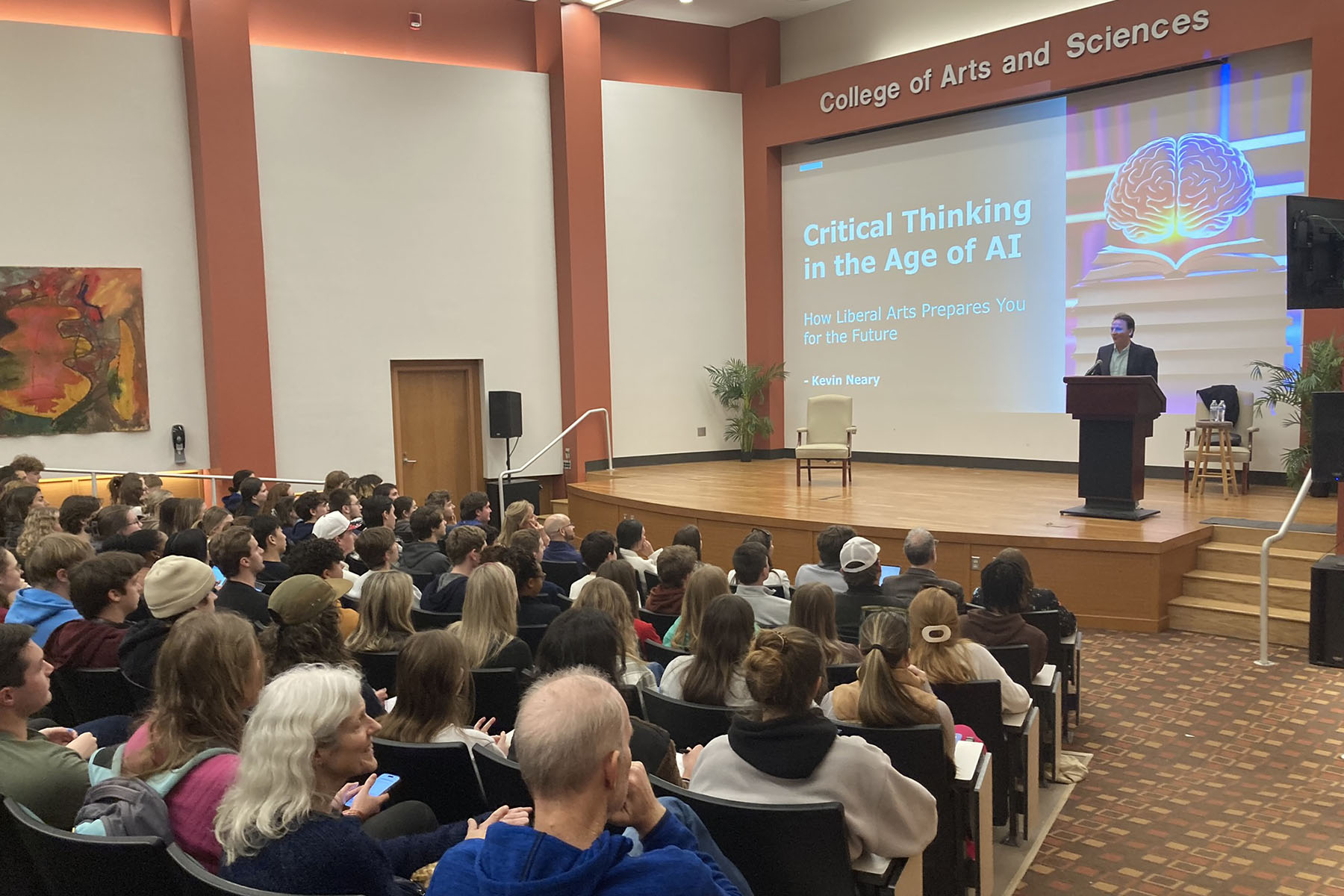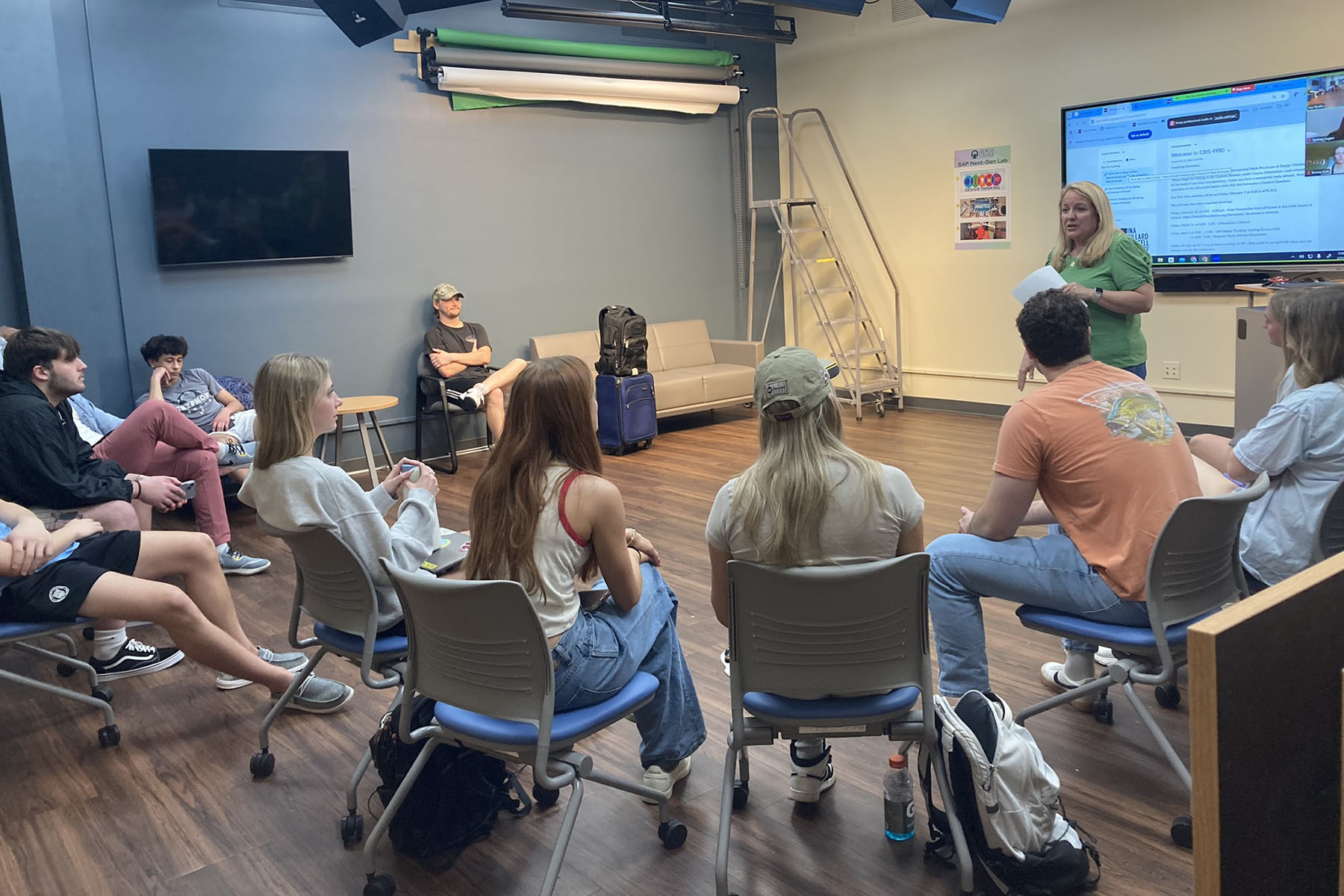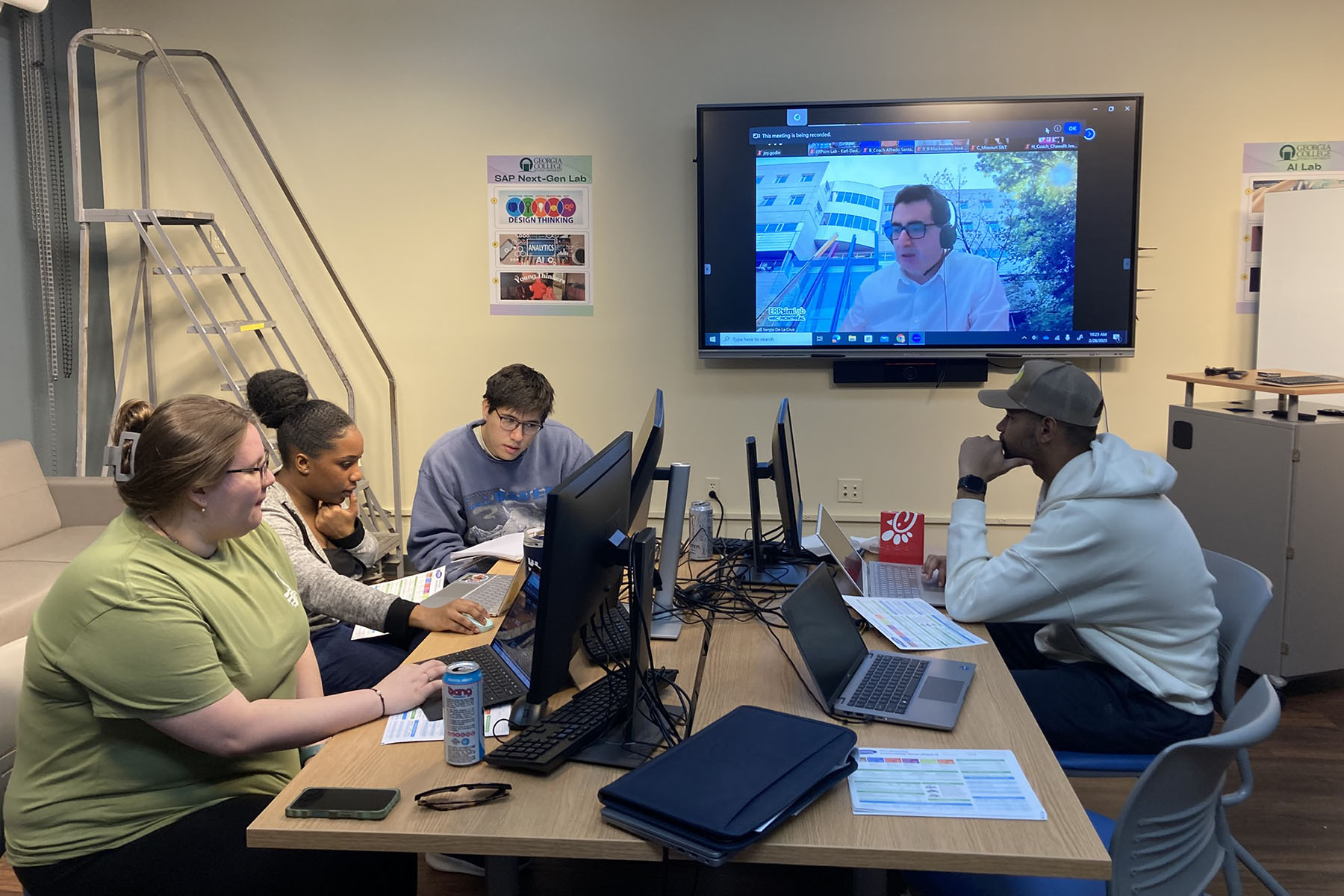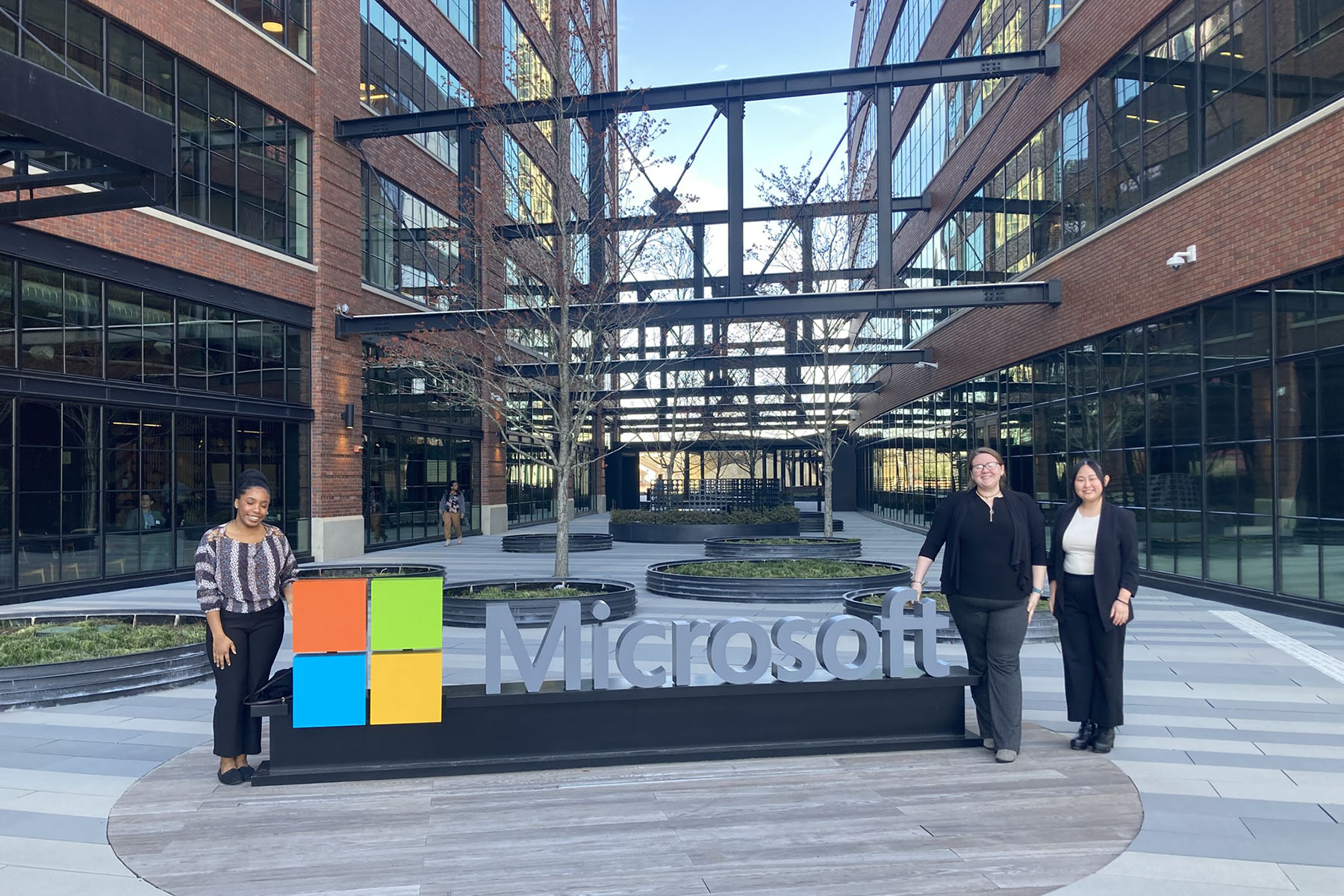Center for Technology and Empowerment Makes AI Accessible for GCSU Students
By Amanda Respess and Mike Cavaliere
A rtificial intelligence is changing the way the world does business, and Georgia College & State University is responding in kind — by launching labs, creating new graduation requirements, bringing in expert speakers and rethinking its approach to business technology.
Thinking Holistically
GCSU began engaging in earnest with artificial intelligence, investigating ways to harness its immense power for good, with last year’s launch of the AI Lab on campus. A new course — “Professional Writing & AI Prompting” — is also now required for Bachelor of Business Administration degree-seekers, ensuring that students graduate armed with the skills they need to excel in the industrial landscapes of tomorrow. But additional changes are on the way — namely, a move to position AI at the center of business strategy discussions.
The campus’ new Center of Technology and Empowerment (CTE) — which brings together three labs that previously operated independently: the AI Lab, the Center of Design & E-Commerce and the SAP Next-Gen Lab — aims to do just that by creating a collective aimed at tackling the toughest challenges in business technology.
“We are excited about the expanded opportunities available to our students through collaboration with corporations and community partners for hands-on projects in enterprise systems, e-commerce and generative AI, all of which help bridge the gap between theory and practice,” said Dr. Tanya Goette, interim dean for the J. Whitney Bunting College of Business & Technology.
The center is led by co-directors Dr. Ward Risvold and professor Caroline Collier. Dr. Joy Godin, professor of management information systems, serves as lab coordinator. Dr. Jeannie Pridmore, chair of Information Systems and Computer Science, supports the CTE and its faculty.
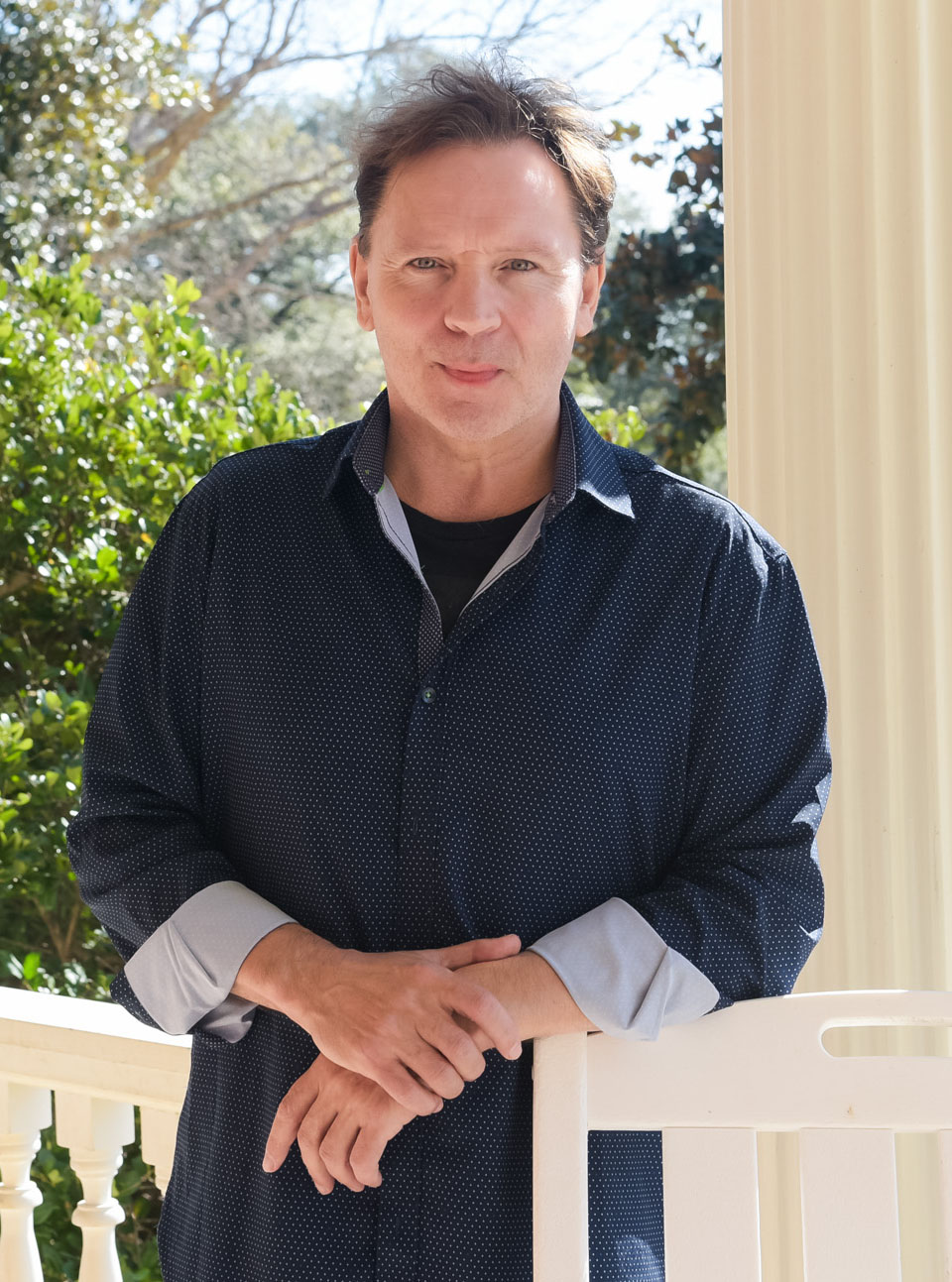
Not Fearing the Future
Earlier this year, AI expert Kevin Neary, co-founder and CEO of Orcawise, an Ireland-based company focused on implementing ethical AI solutions, visited campus as part of the Business Executive-in-Residence program.
“The jobs coming down the line are getting more interesting and more exciting, and the only thing that’s going to be automated are those jobs that nobody wants to do anyway,” Neary said. “AI agents to oversee the automation, human oversight, is going to be so important.”
He emphasized, however, the need for continuing education to ensure that workers stay nimble in the face of change, calling it a “mindset shift” that he noted is already alive and well in the world of liberal arts.
“To get the best AI, we need top-class philosophers, English majors, marketers, lawyers and artists,” he said. “Liberal arts, in my mind, equals critical thinking.”
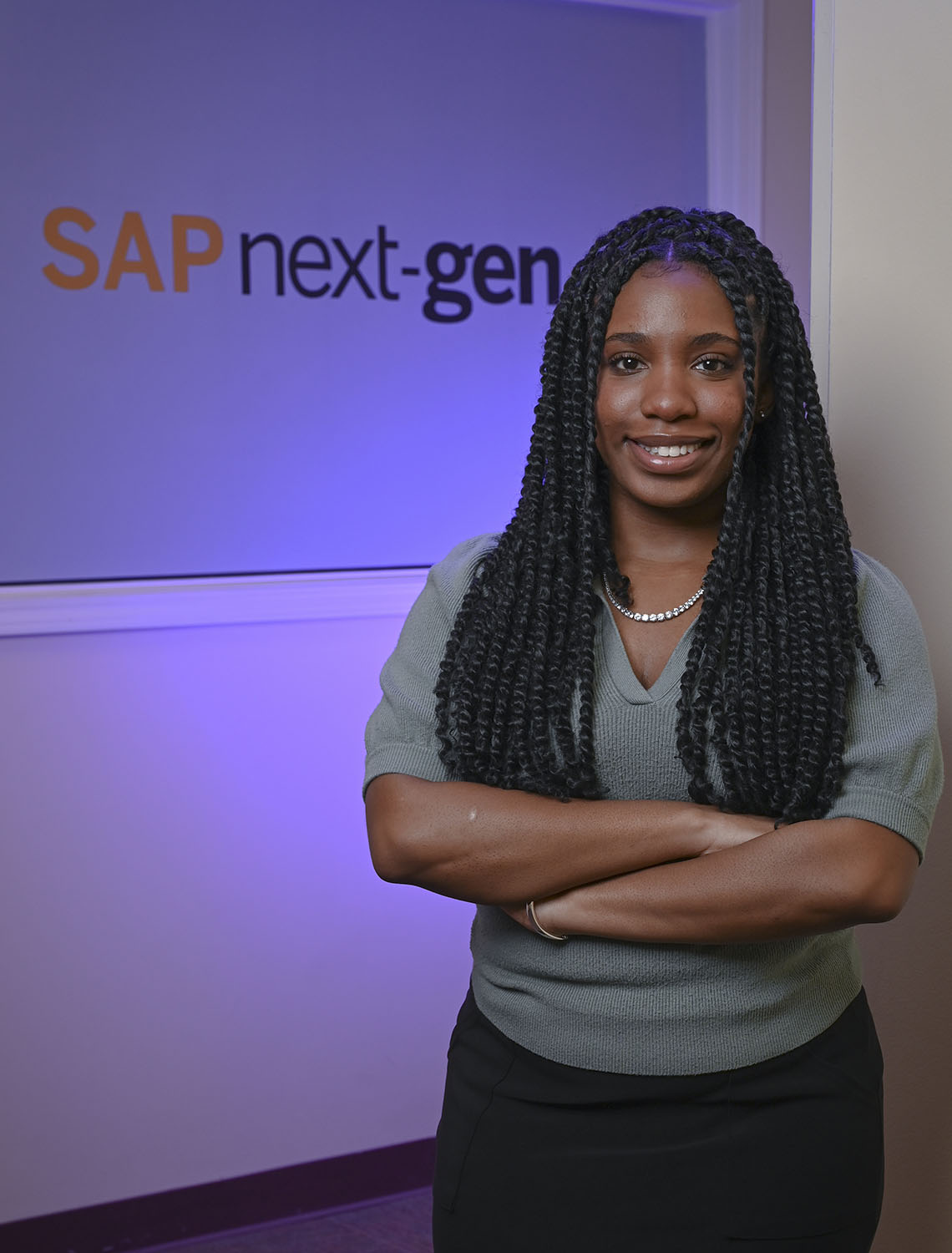
Students Engaging with AI
Students are already realizing the benefits of taking a more holistic approach to business technology topics.
Senior management information systems major Aaliyah Turman from Austell, Georgia, is active in many of the areas the CTE now brings together under one banner. This spring Turman participated in the AI Club’s Double-Blind Storyline Contest using AI to create a new story from a prompt template.
“My story won first place, which was such an exciting honor,” Turman said. “This competition challenged my creativity and deepened my interest in AI-driven storytelling. It also helped me gain a better understanding of how AI systems work, how to prompt them, and why they come up with the answers they do. The AI Club and the AI Lab are very unique and have some great opportunities to learn about AI.”
Turman added, “This experience had a huge impact on my college journey. It pushed me out of my comfort zone, strengthened my public speaking and teamwork skills, and helped me build lasting connections.”
“We foresee the CTE playing a critical role in providing students with innovative educational experiences, fostering interdisciplinary collaboration and strengthening community partnerships,” Goette said.
The CTE faculty are partnering with Neary again this summer by taking two separate study abroad groups to Ireland, England and France; one group is led by Risvold and Collier, the other by Pridmore and Godin. The participating students are earning a certification in AI from Orcawise. Stay tuned for our upcoming story about this innovative, immersive study abroad program later this month when the groups return.
Header Images: The CTE brings together three labs and a host of high impact practices for student learning, including capstone projects, industry partnerships, study abroad and executives in residence.
